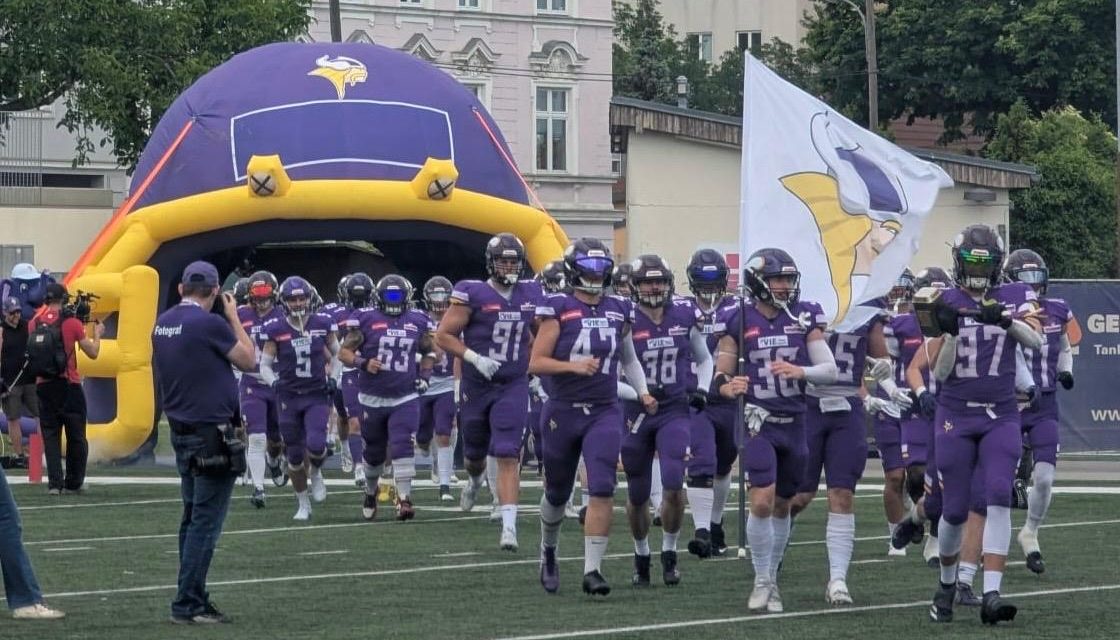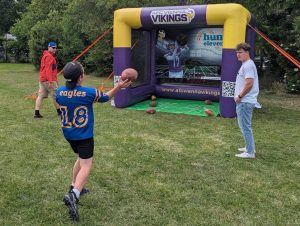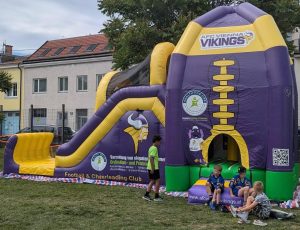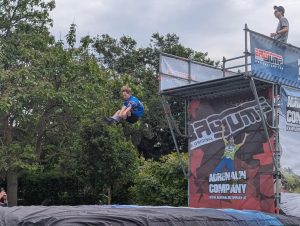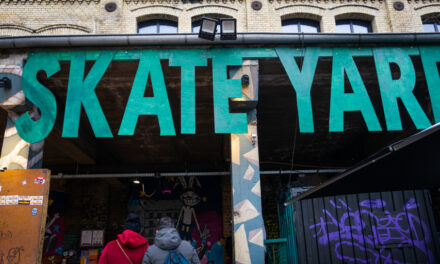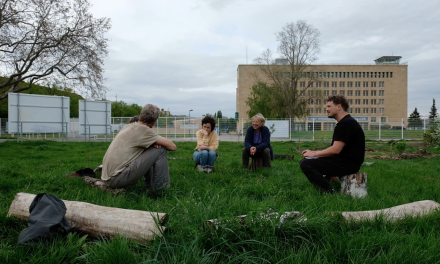A mother ushered her children through the gate of the sports complex. Three hours before kick off, a large crowd was already gathering inside, and she didn’t want to miss the fun. The night before, the Vienna Vikings had thrashed their opponents by almost 50 points just down the road, and yet the community’s appetite for football hadn’t been satisfied. Hundreds of fans gathered to watch the Vienna Vikings amateur team line up in the local Austrian Football League. Unfortunately for these devoted supporters, the game would not end favorably for the Vikings, who surrendered a 13-point lead in the final minutes to lose the game. Still, even this couldn’t spoil the party, the crowd stayed even as raindrops began to fall. It isn’t about the football after all; it’s about the family.
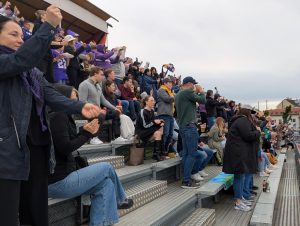
Family and football? Those two wouldn’t cross paths on any Venn diagram west of the Atlantic, but here in Vienna you’d be hard pressed to pry them apart with a crowbar with a side of elbow grease. To understand just why this foreign game exemplifies ‘family’ in a land far from its origin, it’s important to know the history. In the aftermath of the Second World War American football began gaining popularity in Europe. American military personnel introduced locals to the sport, and in the Heart of Europe it found a second home. The AFL was formed in 1984, and in the four decades since it has become one of the strongest domestic leagues in Europe. By the 1980’s football-mania had taken root across Europe, leading to the NFL-backed World League of American Football in 1991. Germany, Britain, and Spain hosted teams alongside seven North American outfits. Though it lasted only two seasons, the league proved Europe had an appetite for American football. Despite several revamps, the league eventually folded in 2007 due to financial losses.
Throughout all this turmoil, Austrians’ love for football never waned, dutifully playing their role as the NFL’s forgotten child. As an amateur team, the Vienna Vikings claimed the Eurobowl – the top honour for an amateur side in Europe – five times in a row from 2004 to 2007. Despite this success they couldn’t break into the professional league, and had to watch as neighbours Germany were chosen to host five professional teams in the final iteration of the European league. In the decade following the leagues collapse, American football clubs in Austria more than doubled, further showing their independence from anything NFL-affiliated.
Germany and the UK, have long benefitted from NFL support. Both countries have hosted NFL gamesthrough the International Series, with more planned for Madrid and Dublin. Austria has seen no such arrangements, instead they’ve organically grown their own brand of football from the bottom up. This strong youth program was highlighted by Sunny Mehta, who works for the NFL’s International Marketing Strategy & Fan Development Department, as a potential reason to bring the NFL to Austria. Whether lip service or not, Austria has done just fine without their help so far, and what’s interesting about the Austrian brand of football is the past and present, and the cultural shift it represents.
When American football entered the Central European psyche after World War Two it was a distinctly counterculture movement. Young rebellious audiences were drawn to American culture, and by proxy, American football – much like earlier generations had been drawn to jazz and rock and roll. Holger Korber, one of the first football pioneers in Germany, said they viewed soccer players as the old guard and saw themselves as the trendsetters. In Austria, the violence and hyper-masculinity of the game was highlighted in the media since the beginning, attracting the same counterculture demographic, but as these audiences grew up, they matured and adopted the community aspect of the game as their core philosophy. While still shaped by American stereotypes, it’s becoming increasingly Austrian in practice—driven by local clubs, volunteers and an emphasis on the grassroots.
Vienna Vikings co-owner Joel Nagel sees this as the great strength of the Austrian brand of football. Theres an authenticity to football in Europe, he says, unlike soccer, which often skews male and rowdy, American football here is a family affair, it’s not uncommon to see parents and kids enjoying the game together. This was on full display during the Vienna Vikings agonising last minute defeat in the ALF. Those fans who arrived early were treated to a distinctly un-American tailgate experience – less booze and boasting, more fun and family (and a little booze!). Adults and children alike made good use of the bouncy castle, bag jump, and throwing challenge, that surrounded the pitch.
If that wasn’t enough entertainment, throughout the match the team mascot, Nellie the Elephant, could be seen wandering through the crowd. There was no tailgate bbq, only authentic Austrian cooking and some good brew to wash it down. Security was at every exit, marking it as a safe haven for families, a far cry from a European soccer game day. As the name suggests, American football is deeply patriotic. This is not lost on the Austrian fans and is a core element of their love for the game. They hold a deep love for their country and are the most patriotic country in Europe. Before every game the national anthem is proudly sung, with smaller renditions of ‘Welcome to Vienna’ echoing during breaks in play.
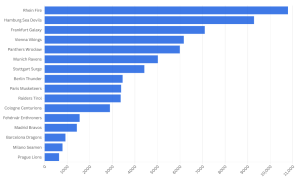
Average attendance of every team in the ELF
So, when the Vienna Vikings joined the European League of Football in 2022, it came as no surprise to anyone involved when they claimed the trophy in their first year. Austrian fans finally had the chance to showcase their love for this once-foreign game, ending the 2024 season with the fourth highest attendance, trailing only former NFL Europe franchises. Carrying this momentum into the 2025 season, the Vikings currently have the third highest attendance in the league and look to show the rest of the competition the brand of football they’ve been quietly building the last forty years – a brand rooted in family.
